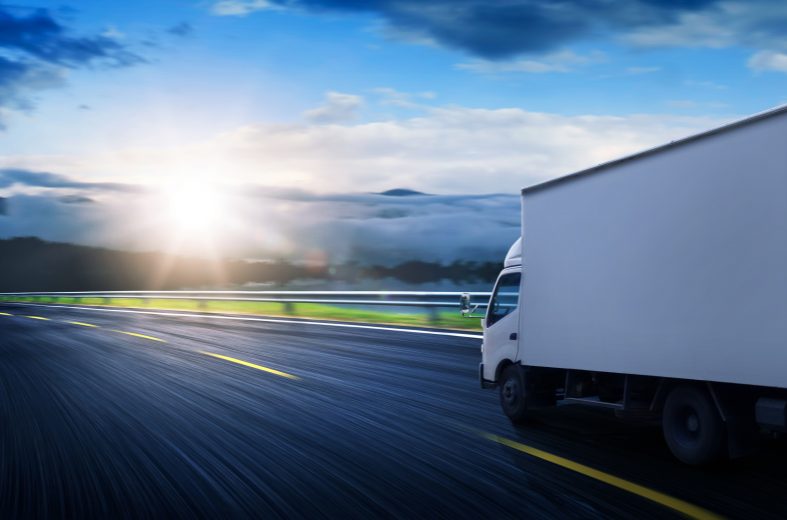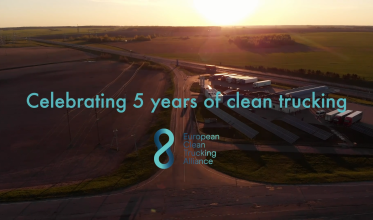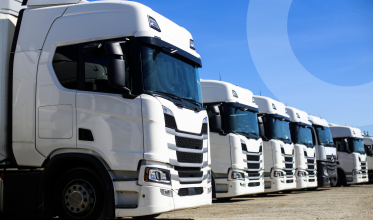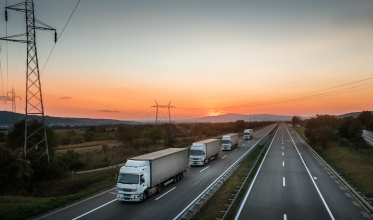Position paper of the European Clean Trucking Alliance: Making zero-emission road freight a reality
The members of the European Clean Trucking Alliance urge the EU to accelerate the transition to clean trucks by scaling up the availability of infrastructure and strengthening the CO2 emission standards to enable emission-free road transport.
In order to achieve this goal, we call on the European Commission to announce in the Strategy concrete measures in the following four key areas:
1. Revision of the CO2 performance standards for light commercial vehicles
In order to reach the EU climate neutrality objective by 2050, at least 50% of new vans sold in 2030 should be zero-emission and by 2035 all new vans sold should be zero-emission.
Sufficient charging infrastructure for vans should be deployed at the same time to ensure a shift towards zero-emission city logistics is possible already within this decade, in line with the goal of CO2-free city logistics in major urban centres by 2030.
2. Revision of the Alternative Fuel Infrastructure Directive (AFID)
The Alliance calls for a legal framework for deploying infrastructure for zero-emission trucks. As there are currently some large differences between Member States plans, the revised AFID should set binding national targets to guarantee an even distribution of infrastructure with a minimum of 2 public charging stations per freight urban node by 2025, increasing to a minimum of 10 charging stations by 2030. While almost all major truck makers have announced production of zero-emission trucks, the infrastructure to power them is lacking.
3. Revision of the TEN-T and TEN-E regulations
The upcoming revision of the TEN-T Regulation should be the opportunity to identify road freight urban nodes, hotspots of freight activity in Europe, like the existing rail freight corridors. like the existing rail freight corridors.
The TEN-T core network corridors should become zero-emission freight corridors, with sufficient charging and green hydrogen refuelling infrastructure deployed at the latest by 2027 to enable zero-emission long haul trips.
The Commission should also ensure synergies with the forthcoming revision of the TEN-E Regulation to reinforce the electricity grid, take into account the integration of locally produced renewable energy and allow vehicle-to-grid.
4. Revision of the Energy Taxation Directive
To support the business case of zero-emission road freight transport, Member States should be allowed to apply tax discounts or exemptions for the renewable electricity used for charging trucks and for producing green hydrogen according to the environmental benefit.





